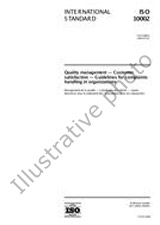We need your consent to use the individual data so that you can see information about your interests, among other things. Click "OK" to give your consent.

ISO/IEC 9798-5-ed.3.0
Information technology - Security techniques - Entity authentication - Part 5: Mechanisms using zero-knowledge techniques
Translate name
STANDARD published on 11.12.2009
The information about the standard:
Designation standards: ISO/IEC 9798-5-ed.3.0
Publication date standards: 11.12.2009
SKU: NS-943089
The number of pages: 53
Approximate weight : 159 g (0.35 lbs)
Country: International technical standard
Category: Technical standards ISO
The category - similar standards:
Annotation of standard text ISO/IEC 9798-5-ed.3.0 :
ISO/IEC 9798-5:2009 specifies entity authentication mechanisms using zero-knowledge techniques:
- mechanisms based on identities and providing unilateral authentication;
- mechanisms based on integer factorization and providing unilateral authentication;
- mechanisms based on discrete logarithms with respect to numbers that are either prime or composite, and providing unilateral authentication;
- mechanisms based on asymmetric encryption systems and providing either unilateral authentication, or mutual authentication;
- mechanisms based on discrete logarithms on elliptic curves and providing unilateral authentication.
We recommend:
Technical standards updating
Do you want to make sure you use only the valid technical standards?
We can offer you a solution which will provide you a monthly overview concerning the updating of standards which you use.
Would you like to know more? Look at this page.



 Cookies
Cookies
